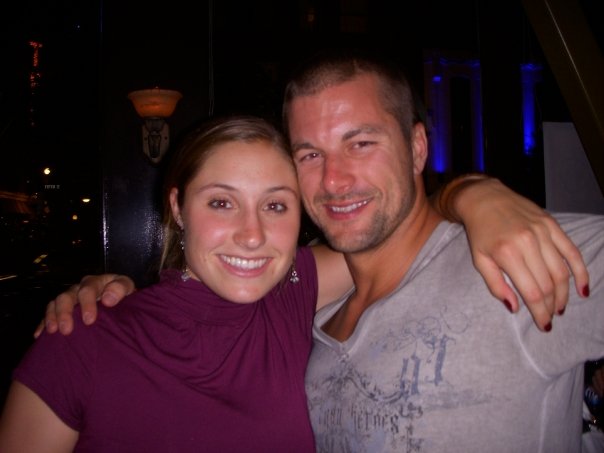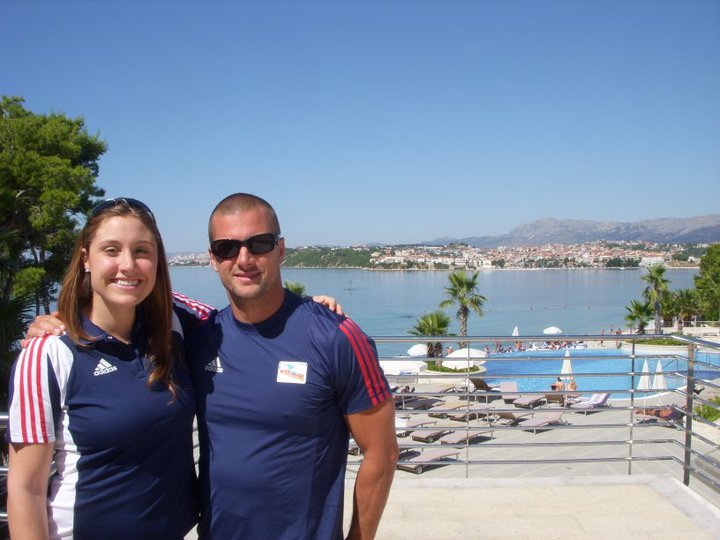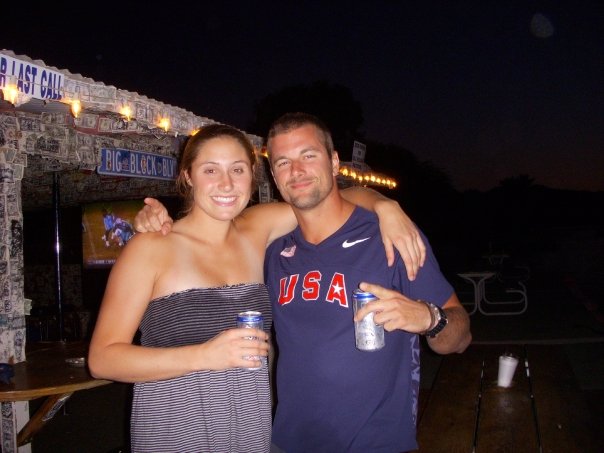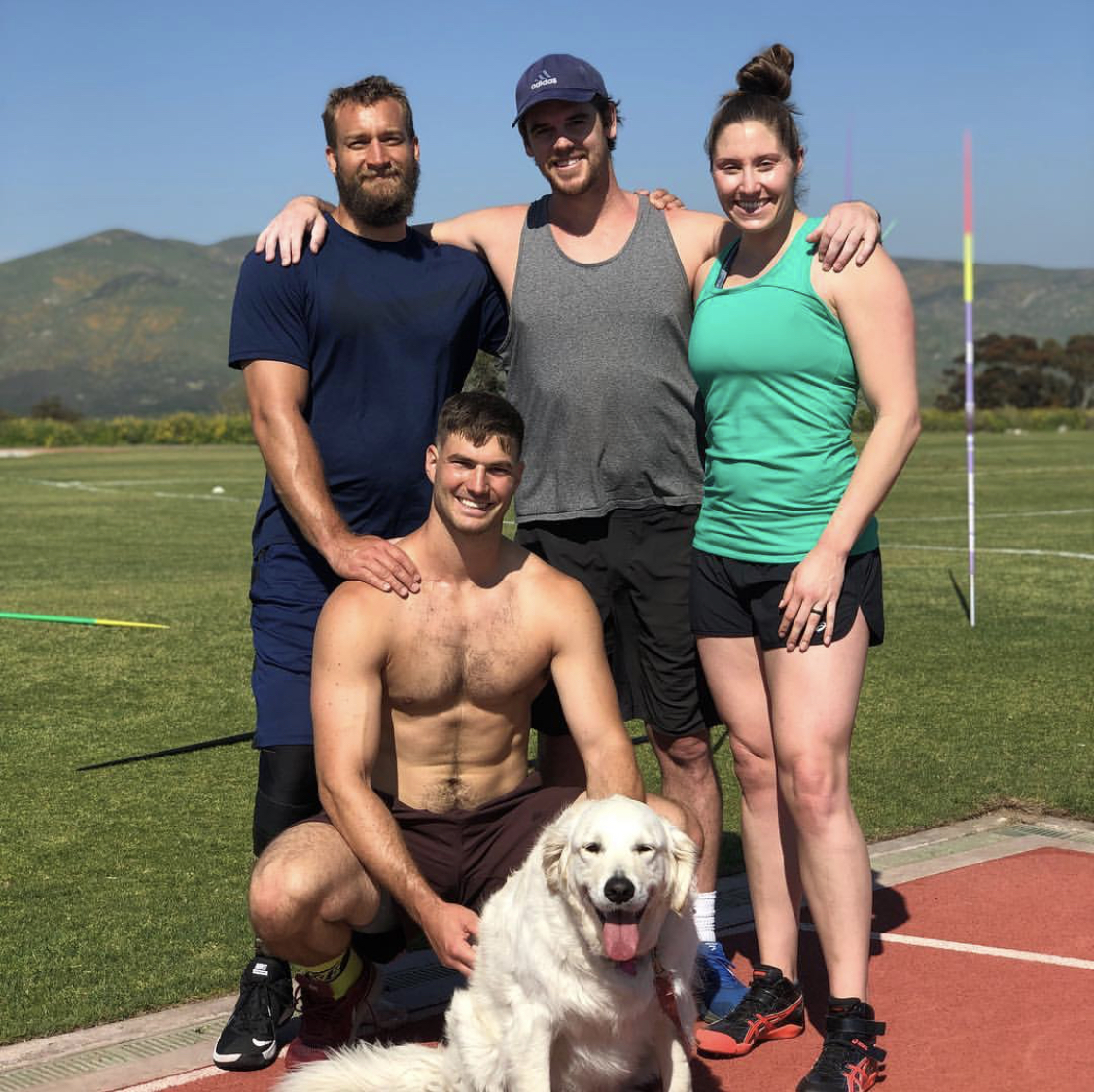Good training partners are gold. How can you be a great one?
One of my favorite training partners!
1. Communicate
Either the day before or via text, let teammates know what your plan is or that you’re on board with their plan for training times, warm-up times, etc. If you’re doing rehab with somebody, communicate with them, too! If you’re the leader on the team, communicate coach’s goals and wishes with your training partners. Just don’t be bossy about it!
Be on time.
Respect everybody’s time (including your own) by showing up when you’re supposed to. If that means you arrive early to stretch before warming up with everyone else, cool! Do that. Go to sleep early so you can make it to 6am lifting on time. Nobody wants that to last longer than it needs to!
If you’re not on time, don’t make people wait.
We all run late sometimes. Go back to step one (communicate). Recognize that you’re not the only one training that day, and give the group the freedom to forge ahead without you. You can catch up!
We both spent a lot of extra time watching and filming each others’ sessions over the years.
2. Practice Selflessness and Self-Awareness
That last bit (don’t make people wait) is a good lead into this topic. As elite athletes, we all have a certain amount of ego. You can still be confident and put forth excellent efforts in practice. But when it comes to team dynamics, you need to exhibit self-awareness.
Selflessness: Grab javelins or dumbbells for other people. Watch and encourage teammates at a throwing session you have nothing to do with. Go to a scary appointment with a teammate just to keep them company. Show up to pack the javelins for travel, even if it’s just so you can grab a bite to eat afterward. Put somebody’s equipment away just because you want to. Listen to a training partner’s favorite music for once. If you have lengthy technical questions for your coach, schedule time away from practice with him or her rather than taking up a lot of everyone’s time for just you. Be a team player within a training session. Something someone else does or a fellow athlete’s random input might answer your question anyway.
Self-Awareness: Pay attention to how things you say or do are interpreted and adjust your behavior. Figure out how you can best contribute to the group with the special skills that only you have! My voice just gets super high when I try to yell for someone in the weight room, and that’s not helpful or inspiring, so I tone it down a bit and let the yelling be done by other people. Russ and I used to talk about how his male training partners could yell and trash talk him to fire him up, but if I tried that no one would be comfortable, LOL. I try to really pay attention to things people are doing and give more specific feedback than just, “Good job.” I find that I appreciate, “The pronation of your left hand on that last throw was way better than the one before” much more than, “I liked that throw,” so why not be specific when I’m commenting on how I’m grateful for peoples’ roles in my life, too? Do some self-reflection, or maybe even ask your training partners how you can help more. Then do that.
Share more than just sport…maybe just not as much as we do. Photo by Paul Merca.
3. Contribute positivity.
Move training times around so that you can train with people if possible. Do not undermine your coach to fellow training partners. Be a friend, not just a training partner: Have fun stuff to talk about that isn’t just track and field during warm-ups. All sports all the time is exhausting! Bond over other things. What podcasts are you really enjoying? Do you have a favorite new TV show? Share an interesting tidbit from a class or your new favorite joke.
If you’re having a bad day, remember that the beauty of training partners is that you can ride the wave of their high during your low. Your frustrating, terrible days are allowed to suck, and you might be surprised to learn that other people are aware that you’re struggling without you going on and on about it! Your training partners know you’re suffering, but don’t want to help you spiral: Let their positivity carry you through on those days. Things WILL get better. Then, when they’re having one of those days, you can carry them.
Maddie is always on time for training and fun.
Do things you don’t need to sometimes. Stretch a friend for 10 minutes. Sit next to the treatment table during some painful soft tissue work and make your friend laugh instead of cry. Talk someone through a tough time you’ve had if they’re experiencing something similar. Be supportive. Being a good training partner is really just being a good friend, and we all know how much we appreciate those. Sometimes, tough things happen in relationships, but the closer you are as training partners and friends, the more incentive there will be to work through difficulties and come out the other side a stronger team.
I’ve already said that I’ve been so lucky to have excellent training partners throughout my career. I wanted to write this blog to further highlight the value of that special relationship. Even though I’ve been training and competing for a long, long time, it still feels great to show up and know that people I’m around have similar goals, yes, but are also just awesome people enjoying the ride. Contributing to that positivity can be so fun. Go get it.










